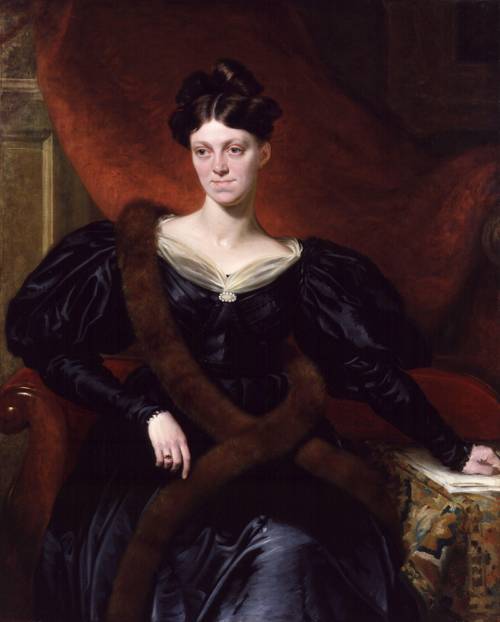
FAQ About Harriet Martineau

Who was Harriet Martineau?
Harriet Martineau was a notable 19th-century English sociologist, a pioneering writer, and political economist. She made significant contributions to social theory and is often considered one of the earliest sociologists. Her works involved detailed analyses of social, political, and economic issues of her time.

What are some of Harriet Martineau's notable works?
Harriet Martineau is renowned for several key publications, including Illustrations of Political Economy, Society in America, and The Martyr Age of the United States. These works explored complex social issues and provided insights into early feminist thought and political economy.

How did Harriet Martineau contribute to sociology?
Harriet Martineau is often credited with laying the groundwork for modern sociology. She introduced a systematic approach to the study of society and emphasized the importance of empirical research. Her work in popularizing and explaining complex theories to the general public was crucial in making sociology more accessible and respected as a field.

What was Harriet Martineau's approach to social issues?
Harriet Martineau approached social issues with a focus on reform and equality. She was particularly interested in the conditions and rights of women, the poor, and other marginalized groups. Her writing often advocated for systemic change and highlighted the impact of economic and social institutions on individuals.

Was Harriet Martineau involved in any social movements?
Yes, Harriet Martineau was actively involved in various social movements, including abolitionism and women's rights. She used her writing to champion causes such as the abolition of slavery, education reform, and gender equality.

What impact did Harriet Martineau have on feminism?
Harriet Martineau was a pioneering feminist who advocated for women's rights in her writings. Her works highlighted the disparities between men and women, particularly in education and employment. She argued for greater equality and played a significant role in raising awareness about gender issues in society.

What distinguishes Harriet Martineau's writing style?
Harriet Martineau was known for her clear, accessible writing style, which allowed her to reach a broad audience. She had a talent for simplifying complex economic and political concepts, making them understandable to laypeople. This approach not only broadened her readership but also made an impact on public perceptions of sociology and political economy.

Why is Harriet Martineau considered a pioneering sociologist?
Harriet Martineau is considered a pioneering sociologist because of her methodical approach to studying social phenomena. She was among the first to suggest that society should be studied systematically, and she provided comprehensive studies of socio-economic and political conditions. Her work set the foundation for future sociological inquiry and research methods.

Did Harriet Martineau face challenges as a female scholar?
Yes, Harriet Martineau faced significant challenges as a female scholar in the 19th century. During her time, women were often excluded from academic circles, and their intellectual contributions were frequently undervalued. Despite these obstacles, she managed to establish herself as a prominent figure in sociology and literature.

How did Harriet Martineau influence contemporary thinkers?
Harriet Martineau influenced contemporary thinkers by emphasizing empirical research and social reform. Her works provided a model for integrating theory with practice, and she inspired many later sociologists and writers who acknowledged her role in advancing the principles of sociology and social justice.

What themes did Harriet Martineau explore in her writings?
Harriet Martineau's writings often explored themes such as political economy, the impacts of industrialization, social stratification, gender equality, and the morality of slavery. She consistently advocated for social improvements and reforms, making her works rich in political and ethical analysis.

How did Harriet Martineau address economic issues in her work?
Harriet Martineau addressed economic issues through her writings by explaining the principles of political economy in a way that was accessible to the general public. Her series Illustrations of Political Economy used narrative to elucidate the complex relationships between economics, society, and individual well-being.

What was Harriet Martineau's viewpoint on education?
Harriet Martineau was an advocate for education reform, believing that education was a vital mechanism for social change. She argued that both men and women deserved equal access to education, as it played a critical role in fostering individual freedom and societal progress.

How did Harriet Martineau contribute to the abolitionist movement?
Harriet Martineau contributed to the abolitionist movement through her writings and public advocacy. Her book The Martyr Age of the United States depicted the harsh realities of slavery and contributed to the growing international pressure on the United States to abolish slavery. Her strong moral stance and articulate arguments were influential in the fight against slavery.

What is Harriet Martineau's legacy in sociology and literature?
Harriet Martineau's legacy in sociology and literature is profound. She is regarded as one of the founding figures of sociology, aiding in its establishment as a serious academic discipline. Her writings continue to be referenced in discussions about social reforms, feminism, and political economy. Martineau's commitment to social justice and equality remains influential today.

Did Harriet Martineau have any influence on policy during her lifetime?
Harriet Martineau wielded considerable influence on policy through her thought-provoking writings and public stance on social issues. Her ideas on political economy and social reform reached policymakers and helped shape public opinion on issues like slavery abolition and education reform, though her direct involvement in policy-making processes was limited.

How is Harriet Martineau recognized today?
Today, Harriet Martineau is recognized as a key figure in the development of sociology and a trailblazer for women in academia. Her contributions to feminist thought, political economy, and social reform are acknowledged both in academic circles and by those advocating for equality and social justice.

What challenges did Harriet Martineau write about in relation to industrialization?
In relation to industrialization, Harriet Martineau wrote about the economic inequality and social hardships faced by the working classes. Her narratives often illustrated the dramatic changes in society brought about by industrialization, highlighting the need for social policy and reform to address these new challenges.

What aspects of Harriet Martineau's work empower contemporary social studies?
Harriet Martineau's work empowers contemporary social studies by providing a framework for analyzing social institutions and their impact on individual lives. Her emphasis on empirical research and her forward-thinking views on gender and equality support modern sociological inquiry and continue to inspire students and scholars in looking at social issues critically and humanely.

How did Harriet Martineau's personal life influence her work?
Harriet Martineau's personal life had a significant impact on her work. Her early experiences with loss and financial instability influenced her interest in social and economic reform. Additionally, her own challenges, such as being a woman in a male-dominated society and dealing with long-term health issues, informed her perspectives on the importance of gender equality and personal agency.
